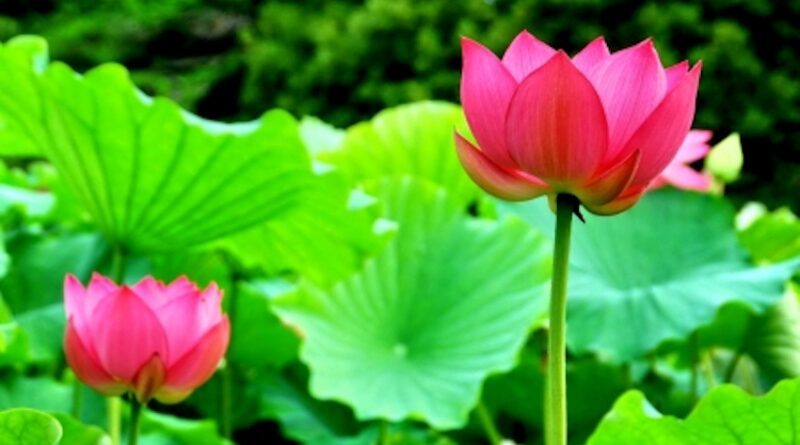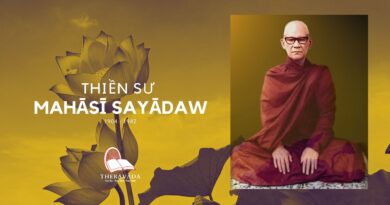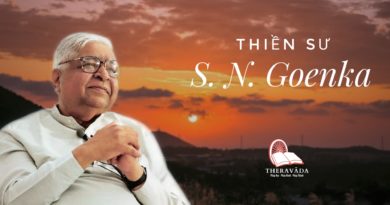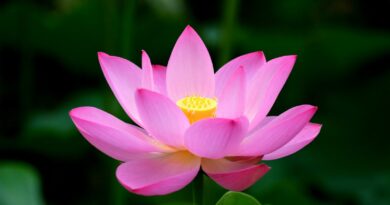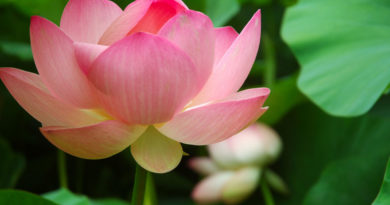DHAMMA RATANA – CHAPTER 4: THE UNOBSTRUCTABLE FOUR CONDITIONS
DHAMMA RATANA – CHAPTER 4: THE UNOBSTRUCTABLE FOUR CONDITIONS
Everyone is afraid of dangers and harms and take preventive measures with all their might and with whatever wealth they possess. Even so if these measures could not prevent the dangers, they may seek others’ help. They are very much disturbed and unhappy when danger unavoidably falls upon them. As there are dangers which could be prevented, so also there are dangers which cannot be prevented.
(1) Decay (2) Sickness (3) Death (4) Subsequent ill-result of misdeeds are the four dangers which no one could obstruct. Not even the most developed and advanced science, nor alchemist, nor mantras, nor super-normal power could prevent them. Buddha himself could not help. The Blessed One has remarked that no one could escape from these four dangers.
Decay
Motto: Decay, sickness, death and the ill-effect of misdeeds are the unobstructable four.
Those approaching poisonous snakes, equip themselves with sticks, knives, etc:. In the same way, we who are getting nearer and nearer to the dangers of old age, sickness and death, must protect ourselves by firm and strong dhamma.
There are two ways of growing old, physically and mentally. You become slow in movements, you need help in sitting down and getting up and in other activities. These are the signs of growing old physically. Your memory begins to fail, you do not remember the names of dear and near ones, relatives, friends, etc:. You forget the purpose of getting into the room and hence to go out and recall. These are the characteristics of mental decay. Just reflect the fact that if you live the full life-span, you are certain to grow old physically and mentally. In old age with failing memory, to practise dhamma is not an easy matter. Thus reflecting, pride in youthfulness will be toned down and prepare you to practise dhamma.
Motto: Reflect upon the danger of old age before you grow old.
As soon as a baby is born aging sets in. It is just like a budding mushroom grows out of the ground with earth dust on it. The aging process is not so apparent because of youthful physique. However aging process carries on since birth.
Motto: It is convenient to practise dhamma before you grow old.
If you practise dhamma in your youth according to the instructor’s guide, it can be easily attained, as you are physically and mentally pliable and workable. Your memory too is quite strong. Those between the age of 20-40 years, under the right instructor and right method, may gain dhamma within a month. However, those near 60 years of age may take two months as their health is not so good. Those between 70-80 years of age, with no foundation of dhamma will find difficulties in practising dhamma.
Motto: It is not convenient to practise dhamma at old age.
Sons and daughters, after attaining dhamma themselves, would like their old parents to practise dhamma and send them to a meditation center. The old parents, with their failing memory and also because of inability to sit long, or to walk straight and disturbed by frequent nature calls, could not concentrate. After 10 or 15 days of meditation, the instructor is not satisfied with the old folks, thinking that they were not contemplating attentively. Thus both the instructor and old folks are unhappy. Though the old folks want to go home, they are reluctant to do so because they know that their children will not be satisfied with their practice.
Motto: It is a mistake not to attain dhamma although you are growing old.
When at home they wish to participate in the family discussion, however the children do not give them a chance. They wish their parents to spend time by meditation, but not to worry about the domestic affairs. Feeling hurt that they are left out, they become very unhappy and angry. Why? because they have not attained dhamma. The sons and daughters nursing their senile parents, become unhappy and not so attentive. At the same time they are afraid that they are committing some misdeeds. Sayadaw has to comfort them by telling that it was not so. Why this unpleasantness in the family? If the parent have attained dhamma, both parties will be happy. Practise dhamma before you grow old, so that you can have the following opportunities in old age.
When the parent contemplate and gain dhamma, the children are very much happy and satisfied that they pay respect and offer the old parents in kind and cash. Then both parties gain merits. Reflect frequently upon the characteristics of old age. People used to take pride in their youthfulness and commit mistakes and misdeeds. By pondering upon the fact that one day you will be old, lessen your pride in youthfulness and become interested in dhamma and, practice before you are too old. Reflect upon it frequently so that you see yourself growing old in your mind eye vividly.
Sickness
Motto: Though you are not yet sick, anticipate the danger of sickness.
Think of the conditions you will experience, when you are sick and bed-ridden, although you are healthy now.
Motto: It is most favourable to practise dhamma, before you are inflicted with disease.
In your youth while you are physically and mentally fit, when you practise meditation you do not suffer much pain. Therefore you can develop concentration in a short time and gain special and noble dhamma.
In order to gain dhamma we need five factors.
(1) Faith (2) Health (3) Honesty (4) Diligence and (5) The knowledge of arising and passing away. Health takes 2nd place. Practice meditation when you are young and healthy and reflect upon old age i.e. think of yourself as an old sick man, lying in bed, in a state which is unconducive for meditation. You are surely to commit more demerits and less merits, since you have not attained dhamma. Reflecting thus your pride in healthiness will be alleviated.
Motto: To practise dhamma when you are sick is not favourable.
Sick and lying in bed, uncertain of life and death, then only you are remorseful and begin to practise dhamma. How could you concentrate if so stricken by sickness. As no wisdom arise you are disheartened. Everyone is not always fit and healthy, they may suffer some kind of unserious sickness. By giving lame excuses i.e. overstating the ordinary pains and aches if you fail to practise dhamma, then it will be a great loss to you. “It is better to practise dhamma so that you will suffer only physical pain but not mental pain” said Buddha.
A ninety year old millionaire, Nakulapita, stricken by disease and in the last stage of life-span, went to Buddha and requested “Oh, The Blessed One, I am too old and sick, I may not be able to come and see you again. Please favour me with a sermon”. In order to let him realize the true nature of life., Buddha told him that there was no one who was unstricken by sickness. The learned one (Athakatha master) expands Buddha’s sermon by explaining that what so ever excretes from the body is regarded as disease e.g. tears, sweat, saliva, etc:. Over excretion, like sweating cause one to be weak, whereas if constipated, one may suffer a sort of uneasiness. In fact everyone suffers one kind of sickness or other though not so serious. When Buddha said, “Practise to be not stricken mentally but only physically “the millionaire was glad and comforted as it suited him perfectly.
He went to see Ashin Sariputtara who asked him whether Buddha had delivered a sermon since he appeared to be very peaceful and calm. Whereupon the millionaire replied, “Why not to a man like me,” as he had been honored as the most intimate one of the Blessed One. Ashin Sariputtra also held the Supreme Honor in Wisdom. When the Elder asked about the sermon, the millionaire said that it was to practise not to be mentally sick but only physically. The Elder again asked him “Did you request the Lord to explain the meaning of to suffer physically but not menially. And also to suffer both mentally and physically?” Since the millionaire had not done so, requested the Elder to explain to him, for he was too old and sick to visit the Elder again.
One suffers both physically and mentally because he has not attained the knowledge to differentiate rupa and nama. When he is physically painful he is also unhappy i.e. mental pain. The Elder explained the twenty false views of self-(five aggregates and four views of self). To illustrate one false view of self you regard your body as ‘I’. when physically painful, you regard it “That it is ‘I’ who is painful”. On seeing something ‘That it is ‘I’ who perceives.” That it is ‘I’ who condition”. “That it is ‘I’ who knows.
Motto: If you perceive rupa and nama as ‘I’, you will suffer both physically and mentally.
You may suffer both physically and mentally when you cannot note rupa and nama as two separate dhammas. The listeners of this sermon, am sure, can note vedana and differentiate rupa and nama. Thus concentration is sustained, wisdom arises and overcome vedana. Sometimes it seems that suffering is detached from yogi, thence he is no more noting vedana. Noting of the dissolution is predominating though there is bodily pain which he is no longer aware of therefore there is no mental pain.
By noting rupa and nama as soon as they arise, there will be only physical pain but no mental pain. Therefore it is wise to practise dhamma when you are healthy.
Motto: By noting the arising rupa and nama separately, there will be only physical pain but no mental pain.
In reality to physically suffer and not mentally is experienced by the arahants only. Even Sotapannas suffer both physically and mentally. If you can note rupa and nama as they arise you may not suffer mentally, if not you may suffer both. Those approaching the poisonous snakes prepare themselves to prevent the danger, likewise we must practise contemplation right now in order to avoid dangers of old age, sickness, death and the ill-effect of misdeeds.
You should try to overcome vedana. After four or five days of practice, aches and pains will be quite intensive. Then you must be patient and keep on noting. Patience begets Nibbana. Once a monk while meditating the whole night, caught cold and became very sick. It was so much so painful that he could not even take care of his robes while rolling side to side. An experienced elder monk Rev: Pintapatika reminded him to be patient when stricken by vedana. The sick monk said “Sadhu” and began to note the vedana and passed away after becoming an Anagam. This is one of the many cases in which vedana is overcome and dhamma achieved through patience. No one, in fact, can escape terminal disease. We should take a lesson.
It is important to have good friends to remind you to be patient and note vedana. When vedana arises, try to find out whether it is a terminal disease, or just in the skin, flesh, bone or marrow. It is natural to suffer, when pain arises and yogi’s duty is to note it. Yogi becomes tense both physically and mentally when vedana increased. He must relax and fix his noting mind right on the pain. Pain increases with each noting and it may also decrease with each noting. It is easy to note when mind is fixed directly on the pain. Both vedana and noting mind are nama and both are very swift. However in the end vedana is overcome by the noting mind.
By successive noting yogi will notice that vedana moves from one place to another and it also disappears after reaching the height. As a matter of fact, yogi now recognizes the true nature of vedana. As vedana increases, yogi also notes ardently. Whereupon disappearing becomes prominent than the noting of pain. This, in fact is, how noting overcome vedana, Yogi is also aware of the passing away of suffering, the knowing of the pain and the noting of that knowing mind. Yogi is then very much interested in the passing away of these three factors and realizes all the three are impermanent i.e. Anicca. To note the dissolution continuously is not a pleasant one i.e. Dukkha. It carries on of its own accord that is Anatta (Selfless). The three characteristics of Vedana are now distinct to him and he gains dhamma.
Motto: Reflect upon the danger of sickness in anticipation of suffering it.
It is most appropriate to practise dhamma before you are sick.
It is most inconvenient to practise dhamma when you are sick.
It is a great mistake not to gain dhamma when you are already sick.
You have not attained dhamma, however vedana is gaining over you. You are miserable and unhappy thinking “Am I going to die? Will doctors be efficient to cure me?” If you die in this state, you surely will go down to the lower abode.
Death
Motto: Reflect upon the danger of death in anticipation of dying.
We are not certain whether we will be still alive or dead. We cannot foresee how long we will live, what disease will inflict us, when death will come, where we will die. However most certain is that we will die one day. The internal dangers are the 96 different kinds of diseases, whereas weapon, poisons, accidents, etc.: are the external danger. We cannot bribe and make appointment with death and its emissaries. We cannot be friend with him. Besides we have not recruited armies to attack death. Though we are still alive, today. We are not sure for tomorrow. Therefore, it is advised that you ponder upon the fact that death is not far off.
Motto: No appointment has been made, nor bribe can win best.
Not enough force to face death.
Who knows that we will be still alive tomorrow,
so postpone no more,
Practise now and evermore.
The reflection upon the danger of death will subdue the pride in being alive. It also inspires to practise dhamma before death falls upon you.
Motto: Better ponder upon the danger of death before it visits you.
Now is the most opportune time for you to practise dhamma for the reasons that you are still alive, a human being, you have a chance to hear the noble dhamma, you are born in the time of Buddha’s Sasana. Take this golden opportunity and practise insight meditation. Whereupon you will realize Nibbana which is free from sickness.
Motto: It is the most favourable chance to practise dhamma before you die.
Those who have not reflected upon the danger of death, enjoy sensual pleasures and forget to carry out meritorious deeds. Not only that they also fail to meditate. These people with little moral deeds and no vipassana practice will be very much frightened when the unpleasant thoughts and fearful symbols appear in their mind on their death bed. They die with fear and delusion which is not a desirable one.
Motto: When delusion occurs near death, it is indeed the most unfavourable mattcr.
If they die in delusion, it is a certainty that they will be reborn in (apaya) lower worlds, the realms of sufferings.. Furthermore they will also encounter with sufferings and misdeeds along the coming existences.
Motto: It is a great mistake to die without attaining dhamma.
Ponder upon the dangers of decay, sickness, death until they are apparent vividly in your mind and practise meditation. Then only you will attain Nibbana which is free from these dangers. Old age starts as soon as a baby is born. Because of youthfulness, it is not so obvious. A baby is growing (getting old) day by day, and month by month. This process of aging is normally regarded as growth and development.
Old age sends one to sickness; sickness, in turn, sends one to death. A cowherd goads his cattle to the grazing ground, similarly decay and sickness are, all the time driving us to death. By contemplation only we can escape from these three dangers.
Motto: Becoming is always accompanied by decay.
It is nearer to sickness as decay sends us to it.
It is nearer to death as sickness drives us towards it.
No bribery can win the dangers of decay, sick ness and death.
Contemplation surely will save us from these dangers.
A man is surrounded by enemies, however there is a way to escape to a safe place. If he does not try to escape there is no one else who is more stupid. Similarly, there is a place, Nibbana which is free from all these dangers and the way magga, to that safe place. He, who does not take that magga does not develop dhamma is the most stupid one. It is better to develop magga dhamma by insight meditation as soon as possible.
Motto: Facing dangers of decay, sickness and death Parents, if alive feel helpless
Sons and daughters are unable to cure
Develop magga dhamma to overcome these dangers for sure.
Ill-effect of Misdeeds
The dangers of decay, sickness and death are so far discussed to a certain extent. Let us consider the ill-effects of misdeeds. In this world all beings and creatures do not wish to encounter with these three dangers. However none could avoid them. So also nobody desires to have ill-effects of misdeeds, but who could prevent them. They surely have to face these dangers; even arahants could not escape from the ill-effects of misdeeds.
There are numerous instances of such effect. Samavadi and her five hundred ladies-in-waiting of King Brahmadat. Baranasi, on one afternoon went to the River to play in the water. When it got late, in order to warm themselves, they set fire to a bush on the river bank. When the fire died down, to their astonishment, they found a Silent-Buddha in the pile of ashes. It so happened that Silent Buddha was the one who used to come to the palace for alms. Samavadi and the ladies were so frightened to be punished by the King, they gathered some more wood and set fire again. hoping that the Silent-Buddha would die in the fire. The Noble one did not succumb to death as he was enjoying the ecstatic jhana state. For that evil deeds they suffered for more than hundred thousand years in hell. In the after-hell existences they were put to death by house-fires for more than 500 existences. In the Gotama Buddha’s time, by listening to the dhamma through Khuccuttara, they all became Sotapanna.
However the ill results waited for their turn. One day an uncle of Magandi, the jealous rival, painted the house where Samavadi and her ladies-in-waiting lived, with grease on the pretence of making the building stronger. Afterwards he locked the building and set fire. All of them were burnt to death.
Another case is about Ashin Moggallan. In his one early existence would-be Moggallan pretended to take his old and blind parents to their relatives. In the forest, shouting “Bad men are coming” he himself beat them to death. He was reborn in niriya and suffered there for more than one hundred thousand years. After suffering in hell, in his next existences, he was beaten to death by bad men for more than 500 existences. In his very last birth as a result of killing his parents he was beaten to death by bad men. Though escape twice by getting out of the key hole and through the roof, in the third time he let himself be beaten by the roughers because he realized that he could never escape the ill-effect of killing his blind parents. He was beaten till his bones were broken into pieces. As the possessor of super normal power, by developing the ecstatic Jhana state, he saved his life and went to Buddha. He passed away into Nibbana after paying respect to Buddha. It is quite obvious that no one can escape the ill-effects of misdeeds.
The good Buddhist are very careful not to commit serious misdeeds.
After listening to this sermon may you all be able to practise accordingly and in short time attain Nibbana which is free from old age, sickness, death and ill-effects of misdeeds by effortless practice.

